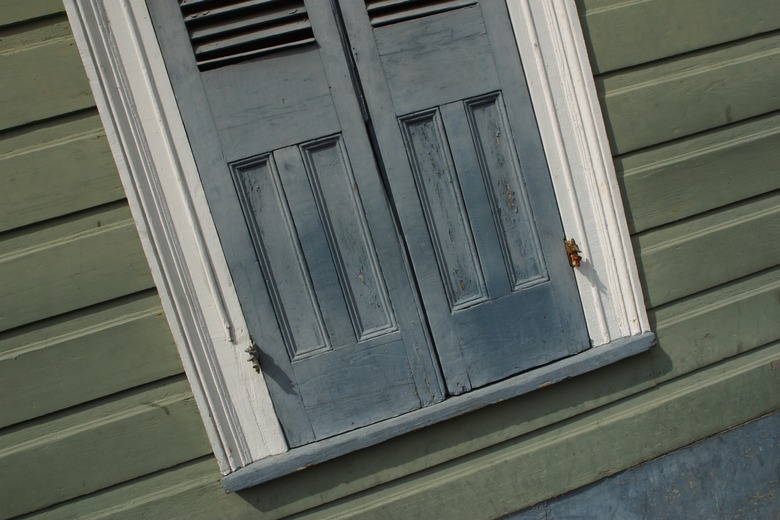Reasons To Build An Eco-Friendly Home
We may receive a commission on purchases made from links.
Eco-friendly building gets a lot of hype, but there are also concrete advantages to "going green" when you build. Green building alternatives can help you save time and money, protect your health and reduce your impact on the environment. From improving indoor air quality to mitigating global climate change, green buildings help people live a more resource-friendly and sustainable lifestyle.
Reduce Environmental Impact
Reduce Environmental Impact
Using energy-efficient, renewable or recycled materials lessens a person's environmental footprint, or impact on resource use and pollution. A green home produces fewer carbon emissions through efficient energy use, keeps trash out of landfills and lessens the impact of new construction on the world's finite resources.
Attitudes and cultural values drive sustainable behavior, according to research published in the "International Journal of the Sustainable Economy." This means that if enough people take even small steps toward sustainability in the home now, spreading cultural value will produce greater impacts for the positive environmental impact of green building down the road.
Save Time
Save Time
Using the right eco-friendly building materials in the right place can save construction time. Buying locally available materials supports small businesses, keeps money in the local economy, reduces the home's carbon footprint by minimizing fuel used in shipping and means your materials will be available quickly and reliably. Building a much smaller structure, like a small-square-footage "tiny house" that takes minimal resource use, can also save you money simply by reducing the scale of construction.
Erecting a prefabricated green home from a kit can also save you time, as long as the structure is up to code and approved by your local government. Green home kits offer prefabricated building options designed to green specifications that can save in on-site construction hours and final finishing.
Save Money
Save Money
Using recycled or secondhand materials and appliances can save money upfront during construction. In many cases, though, green options like Energy Star appliances, thermal-heat-retaining gypsum panels, metal roofing or a tankless water heater cost more than their traditional counterparts. In these cases, the savings come later. Energy-efficient options or alternative energy sources — like solar panels, photovoltaic cells or geothermal heating — keep utility bills down. Long-lasting construction alternatives can also keep waste out of landfills while saving money that would have been spent on repairs or renovations.
Protect Your Health
Protect Your Health
Many traditional building materials aren't optimal for the health of the people who live in the home. Volatile organic compounds, or VOCs, for example, are known carcinogens, irritants or toxicants that are present in many paints, plastics, building materials and indoor products, from cleaning supplies to mattresses. Some traditional materials also encourage moisture buildup, which can lead to toxic mold or mildew problems. Both VOCs and molds cause outdoor air pollution problems. Choosing non-VOC and moisture-resistant products, as well as installing systems that enhance air quality, protect your health and environmental health at the same time.
References
- International Journal of Sustainable Economy: Exploring Cultural Values Connected to Sustainability: Why Some People Are More Likely to Act in a Sustainable Manner Than Others
- Pre-Fabulous + Sustainable — Building and Customizing an Affordable, Energy Efficient Home; Sheri Koones
- CalRecycle: Green Building Materials
- Minnesota Public Radio: A Look at the Tiny House Movement
Cite This Article
MLA
Maclin, Ellie. "Reasons To Build An Eco-Friendly Home" sciencing.com, https://www.sciencing.com/reasons-build-ecofriendly-home-19542/. 24 April 2017.
APA
Maclin, Ellie. (2017, April 24). Reasons To Build An Eco-Friendly Home. sciencing.com. Retrieved from https://www.sciencing.com/reasons-build-ecofriendly-home-19542/
Chicago
Maclin, Ellie. Reasons To Build An Eco-Friendly Home last modified March 24, 2022. https://www.sciencing.com/reasons-build-ecofriendly-home-19542/
